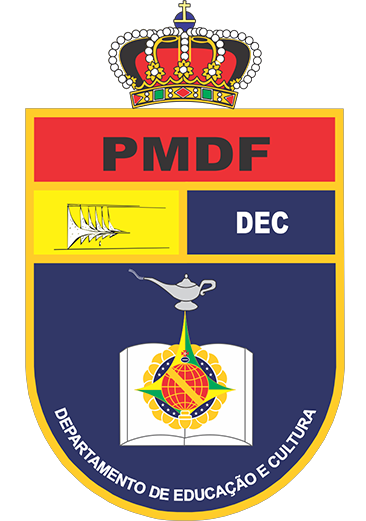Call for papers Dossier on Police Psychology and Public Security - Special issue I/2024
Dear researchers,
The Head of the Department of Education and Culture (DEC), through the Editorial Board of the Revista Ciência & Polícia (RCP), is calling for submissions of theoretical and/or empirical scientific articles on topics related to Police Psychology and Public Security.
To encourage debate, production, and dissemination of knowledge in the area of Public Security, RCP will be receiving manuscripts (articles and experience reports) for the Dossier Police and Public Security Psychology - Special Issue I/2024.
Police and Public Safety Psychology refers to a broad area of applications of interest to law enforcement agencies. Since 2013, it has been formally recognized by the American Psychological Association (APA) as a specialty in professional psychology. It is also directly related to important APA divisions such as Military Psychology, Peace Psychology, Community Psychology, Behavioral Crime Prevention, and others.
In Brazil, the Federal Council of Psychology (CFP) published "Technical references for the work of Psychologists in public security policy" in 2020. The document presented possible intersections between psychology and public security policies, listing thematic axes that bring together: police lethality, personnel selection and management, and the work of psychologists in public security institutions, among others.
Police and Public Security Psychology can range from understanding physical work environments to responses to stress factors among public security agents; from the ergonomics of personal protective equipment to the efficiency/effectiveness of the progressive force resources used by police officers and firefighters; from the processes of psychophysiological illness to preventive and mitigating institutional interventions; from the reception of victims of aggression by police psychologists to the preparation of criminal reports and profiles for investigative and/or legal purposes such as prosecution or criminal execution. It therefore occupies a vast field of interdisciplinary action, whether occupational (pre-employment assessment of candidates or specific aptitudes, clinical care, etc.) or operational support (crisis intervention, hostage negotiation, behavioral analysis, etc).
Manuscripts can be submitted in Portuguese, English, or Spanish on the RCP website (https://revista.iscp.edu.br/index.php/rcp/index). The I/2024 special issue will use the American Psychological Association (APA) style 7a. edition (see https://apastyle.apa.org/style-grammar-guidelines/paper-format/sample-papers ).
Use the Cover Letter template to describe your manuscript to the editorial board during the submission process. Use the ABNT RCP Template to compose the body of the text, without identification. For Dossier I/2024 - Police and Public Safety Psychology, use the APA RCP Template.
Only theoretical manuscripts that constitute an effective conceptual contribution will be processed, not limited to annotated monographs on a given topic. Literature reviews will only be processed if they meet the criteria for this type of publication: if they are systematic reviews, they must comply, for example, with PRISMA (www.prisma-statement.org/); if they are narratives, they must highlight contradictions and gaps, suggesting solutions.
After the editorial flow, the revised manuscripts may be published in the special edition of Volume 10, scheduled for April 2024.
Deadline for submission - Police and Public Security Psychology Dossier:
- Special issue I/2024: until February 10, 2024
- Regular issue: Continuous
Guest Editors - Thematic Dossier on Police Psychology and Public Security:
Dr. Adriano Beiras, Universidade Federal de Santa Catarina (UFSC)
Dr. Carlos Manoel Lopes Rodrigues, Centro Universitário de Brasília (UniCeub)
Dr. Cláudio Vaz Torres, Universidade de Brasília (UnB)
Dr. Cledinaldo Aparecido Dias, Universidade Federal de Minas Gerais (UFMG)
Dra. Cristiane Faiad de Moura, Universidade de Brasília (UnB)
Dra. Daniele de Souza Alcântara, Instituto Superior de Ciências Policiais (ISCP), Brasil
Dr. Fabio Iglesias, Universidade de Brasília (UnB)
Dr. Miguel Angel Soría Verde, Universitat de Barcelona (UB), Espanha




